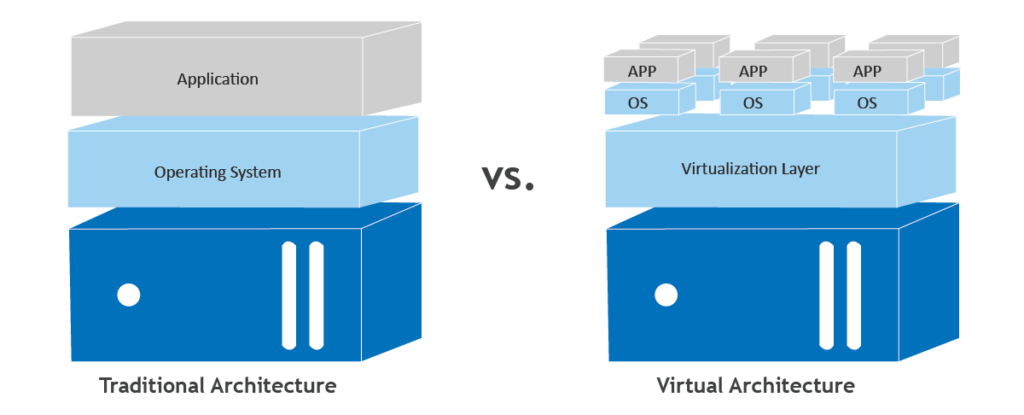Deploying virtual machines (VMs) through your organization’s digital transformations provides several benefits, such as cutting back on the overall healthcare IT infrastructure costs, improving maintenance, and increasing security. It also enables the overall organization to plan a better, more efficient network to meet demands. But there’s a lot more to it.
Here are the 5 reasons you should consider introducing or deploying more VMs into your health IT systems.
1. Elasticity and scalability.
VMs can instantly deploy software solutions without hardware, so it becomes easy to match the resources allocated with the resources needed. With them, it’s a lot simpler to deploy flexible clinical solutions.
2. Simplified workload migration.
Think of a situation where you’re moving clinical data or applications from one location to another. With VMs, the workload migration across systems would be so much easier than with Physical Servers.
3. Reduced cost for hardware and energy
Capital expenditure increases with Physical Servers. Dedicated resources such as CPU, RAM, Storage, Network, and Singular Base OS mean more spending for hardware and energy. Plus, system failures require capital cost to replace the instance. VMs can reduce or eliminate the cost of purchasing and maintenance.
With virtual machines within a local data center, you can run more applications with fewer hardware resources.

4. Centralized Security
VMs improve security levels by allowing organizations to apply centralized security policies to all VMs within the organization. It’s much easier to implement security in the overall domain, allowing IT to reduce reaction time when malware is detected. With VMs, there’s no further need to worry about the risk of damage or theft.
5. Hazard-resistant infrastructure
VMs play a key role in providing better continuous availability for applications for these two reasons:
- Quicker recovery time for instance failures and disasters.
- Fault tolerance and failover systems can be implemented within hours to allow for applications to run continually.
SecureConnect, part of Fukuda Connexus Suite fully supports a virtualization deployment model that allows for simplified integration and scalability – while reducing any associated overhead costs.



